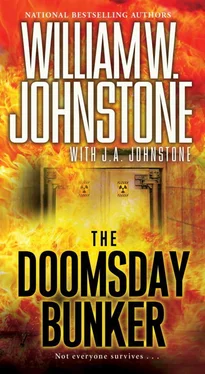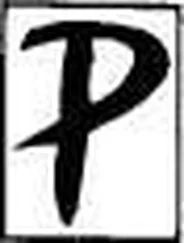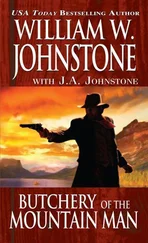“Stand there,” he told her as he tried to look along the mall to see what was happening. The disturbance was up toward the food court.
Ever since malls had started proving to be such attractive targets for terrorists, he hadn’t liked coming here. He never set foot in the place without his carry gun being snugged in its waist holster. Not that his lone gun would really make much difference if the mall came under attack by suicidal, homicidal lunatics, but at least he could put up a fight and maybe, just maybe, save Luisa’s life.
Of course, these days terrorist attacks didn’t have to be large, well-coordinated affairs. It could be as simple as one nut with a gun or a knife, in which case two or three well-placed rounds could make all the difference in the world. Threadgill didn’t unholster his pistol because he didn’t want to start a panic, but his hand was close to it as he told Luisa, “Stay here and I’ll find out what’s going on.”
“Adam, I’m scared,” she said as people continued running and shouting.
“So am I, babe,” he told her. He leaned close, put his other hand behind her head, and kissed her hard. “I love you.”
“I love you, too, but somehow that isn’t making me feel better.”
Threadgill knew what she meant. It felt like they were saying good-bye forever.
These days, that might be true.
He turned and trotted toward the center of the mall, toward whatever the commotion was instead of away from it. That was a Marine for you, he thought wryly. Too dumb and stubborn to go the other way.
Then he heard someone yell, “Nuclear war!” That put a whole different slant on things. Threadgill grabbed the arm of a guy rushing past him and jerked him to a stop. The man looked like he was about to take a swing at him, but one look at Threadgill’s solid form made him pause.
“What the hell’s going on?” Threadgill asked.
“Somebody dropped a nuclear bomb on South Korea,” the man said, “and they’re coming after us next!”
“Who? North Korea?”
“I don’t know, man. I just want to get out of here!”
Threadgill let go of the man’s arm and stepped back. He didn’t have any right to keep the guy from getting to whoever he wanted to reach before the end came. If the end was indeed coming.
And then he thought about the Hercules Project, wheeled around, and broke into a run back toward his wife.
* * *
Beth Huddleston was about to start talking to her third-grade class about fractions when the speaker on the wall crackled into life and the principal’s voice said, “Teachers, just to let you we have a code orange.”
She probably sounded normal enough to the kids, but Beth heard the little quiver in the woman’s voice and knew something actually was wrong. This was no drill. There was a good reason to put the school on lockdown, which was what code orange meant.
After all the shootings over the years, Beth had taught herself not to think about the possibility of something like that happening at her school, but the little twinge of dread was always there in the back of her mind. She was firmly convinced that such things would never happen if the country would just wake up and make it illegal for anyone to own guns except the police and the military—and they shouldn’t have nearly as many guns, either.
As it was, the school had an armed security guard on duty at all times during the day, so Beth listened intently for the sound of shots as she tried to keep her voice calm and said, “All right, children, we’re all going to stand up and move over on the other side of the room.” Forcing herself not to rush and spook the kids, she walked to the door, locked it, and turned the lights off.
“Oh, my God!” one of the little girls cried. “It’s a lockdown! There must be a killer in the school!”
“Hush!” Beth told her as she motioned for everyone to be quiet. “We don’t know what’s going on. We’ll all just stand here quietly, and I’m sure everything will be all right…”
Her voice trailed off as even through the school’s walls, she heard warning sirens begin to wail.
* * *
Jim Huddleston tore out of the house like his tail was on fire. Larkin didn’t try to stop him. He was too busy calling Susan.
A glance at the clock had told him that it was late enough for her shift at the hospital to have ended some forty-five minutes earlier. At least, he hoped she hadn’t had to stay on duty for some reason. Maybe one of the other nurses couldn’t come in and Susan was covering for her. Maybe there had been a bad wreck and Susan didn’t feel like she could leave with the place swamped. Working in an ER wasn’t like punching a clock in a lot of jobs. You did what needed to be done, when it needed to be done, even if it meant staying past the end of your shift. At least, the dedicated nurses did.
Larkin knew that if his wife was still at the hospital with an emergency breaking, she might not leave. She would want to, but her sense of duty might not let her.
He was a little ashamed, but as he called her he was praying that she’d already started home.
She answered when the phone had barely started ringing. “Patrick?” she said. He heard the anxiety in her voice. “What’s going on? I hear sirens, and some people are even running around in the street.”
“You’re on your way home?”
“Yes, I’m like a mile away.”
Larkin closed his eyes for a second in relief, then said, “Thank God. Get on back here as soon as you can. I’ll have our bags ready. Grab the spare one from your car when you get out.”
“The bug-out bags?”
He didn’t answer her directly. Instead he said, “South Korea got nuked.”
“Oh, my God.”
“And North Korea and Russia say we’re next if we do anything about it.”
“But we won’t… will we?”
“I don’t know. Lord help me, I don’t know.”
“So we’re not actually in… a nuclear war?”
“Not yet. It could happen any time, though.”
“Maybe I should go back to the hospital—”
“No!” Larkin forced himself to take a deep breath and calm down. “Come on home,” he went on. “Whatever happens, you’ll be where there are people who need your help. Just remember that.”
“You’re right. Of course, you’re right. I’ll be there in a few minutes.”
Larkin broke the connection. He didn’t want to—he would have preferred to stay on with her until she got home—but there was too much to do. He hurried through the house, grabbing not only the specially prepared bug-out bags but also his computer bag and a carrying case with several pistols in it. He had already taken a number of rifles and pistols out to the Hercules Project and stored them in one of the gun vaults there, along with a large supply of ammunition. The anti-gunners could call him a gun nut all they wanted to. He didn’t care. Being well-armed was a lot more important than what some people thought about him.
As he carried the bags into the garage, he looked down at the one containing the computer. His backup USB drives were in there, except for the one that was in his pocket. He was paranoid about losing his work and perfectly willing to admit it. He recalled that earlier he had backed up the current manuscript to the cloud.
Would there be a cloud left by the time this day was over? Would there be anybody left to read his books?
Did any of it even matter anymore?
But on the chance that it would matter, he was taking his computer with him.
The garage door rattled and started up. He needed to oil it, he thought as he saw Susan turn in at the end of the driveway. Couldn’t have a noisy garage door for the apocalypse.
Читать дальше









